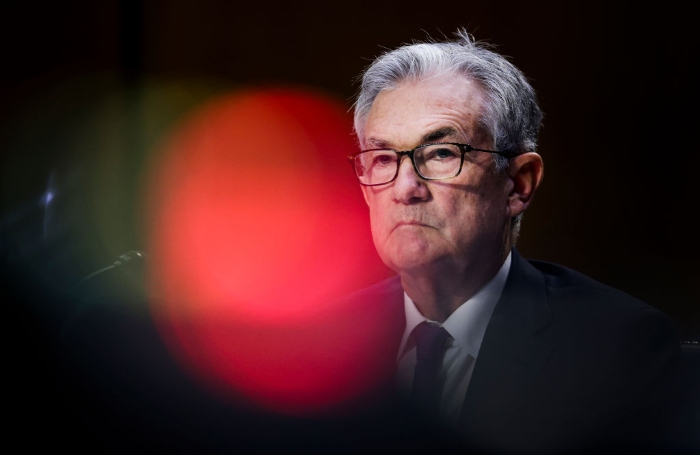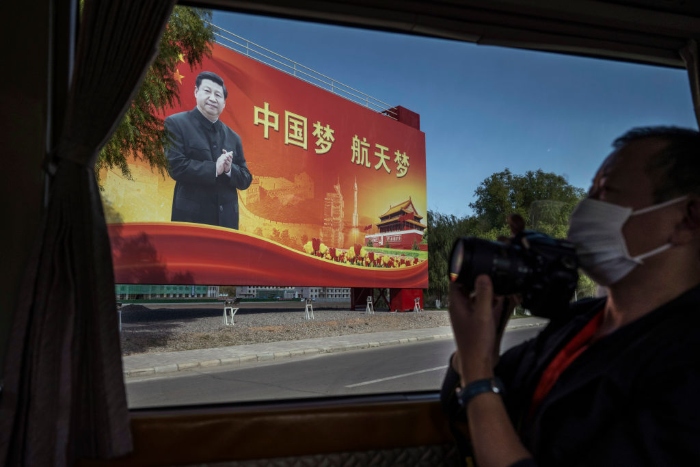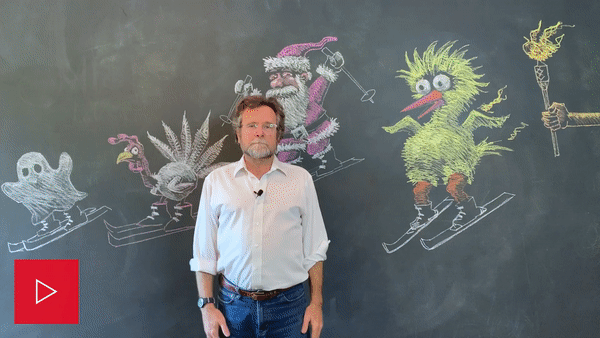| | |  | BY RENUKA RAYASAM | | With help from Phelim Kine and Lauren Gardner FEELING RESERVED — Everything seems to be more expensive these days. A record number of people are giving their employers the middle finger. Well, not literally, but you know. And a trillion dollar infrastructure bill, which some Republicans say will boost inflation, heads to President Joe Biden’s desk on Monday. It will be the job of the next Federal Reserve chair to sort this all out. Biden is expected to nominate his pick before Thanksgiving. The top contenders are current Fed Chair Jay Powell, a Republican who was first nominated to the Fed by President Barack Obama and then was promoted to chair by President Donald Trump, and Lael Brainard, a Democrat appointed to the Fed board by Obama.
| 
Federal Reserve Chair Jerome Powell testifies during a Senate Banking hearing at the Hart Senate Office Building in Washington. | Kevin Dietsch/Getty Images | Nightly chatted with POLITICO economics reporter Victoria Guida over Slack today about what about the job facing the next Fed chair. This conversation has been edited. What is Biden weighing in deciding between Powell and Brainard? The biggest pros for Powell are that he’s already in the job, so it would mean minimal disruption at a tricky time for the economy. He also has a lot of bipartisan support in Congress — he would likely easily clear 70 votes in the Senate. Brainard stuck it out at the central bank under the Trump administration and is a PhD economist unlike Powell (who is a lawyer and former private equity investor). Progressives appreciated the fact that she dissented against some of the deregulation that happened under Powell’s watch. They also think she’d be more focused on making sure the Fed is addressing potential financial risks from climate change. Talk me through this slew of economic data. We’re seeing inflation and people quitting their jobs in droves. Yes, it’s quite a lot to parse! The glass half full interpretation is that we’re getting this inflation because consumer demand is so strong, which means people have money to spend and they’re ready to spend it, but shipping and production delays are making it so supply can’t keep up yet. But demand is a necessary part of a recovery, so ideally this will just mean that supply chains adapt, and we explode into recovery rather than limping into it like we did last time. If job growth continues at the strong pace it’s been going, that also gives the Fed more breathing room to raise interest rates to fight inflation without hurting the broader economy. And quits are a good sign that people feel like they have options. The glass half empty interpretation is that all of these supply chain problems could eat up people’s savings and start to choke off demand. And at the same time that people start spending less, price hikes could lead people to start asking for higher wages for reasons entirely unconnected from any kind of actual growth or productivity — but because they need to afford things. That can be the start of a more dangerous cycle of inflation. How could Powell and Brainard’s approaches to the current economic situation differ? So the Fed has two jobs: price stability and maximum employment. The way it influences those things is by influencing how expensive it is to borrow money. Brainard is seen as slightly more “dovish” than Powell — that is, more likely to keep rates low to help grow jobs — but in reality, there’s been very little daylight between the two of them. Powell maybe has a better understanding of markets, while Brainard has a deeper understanding of economic theory. How would the infrastructure bill that just passed and the social spending bill still pending affect the economy? Infrastructure spending shouldn't be inflationary — it tends to be spread out over time, and done properly it should increase our economic capacity to produce, meaning it should increase supply, which is exactly what we need to happen. The social spending bill is trickier. If it’s paid for by taxes, it shouldn’t stoke inflation over the long run, but if a lot of the spending comes quickly while the revenue comes in later, it could feed inflation in the short term. It’s Friday, give me a fun fact about the economy. The percentage of workers who quit their jobs hit an all-time high of 3 percent in September. That’s a record 4.4 million people. It’s mostly lower-paying and/or in-person jobs. Indeed’s Nick Bunker points out that manufacturing quits are up 78 percent since February 2020. Welcome to POLITICO Nightly . Reach out with news, tips and ideas at nightly@politico.com. Or contact tonight’s author at rrayasam@politico.com, or on Twitter at @RenuRayasam.
| |
| | A message from Bank of America: Big changes in healthcare—will they change your financial life? Experts answer key questions to help you and your employees prepare for rising costs and offer practical ideas for saving and planning for healthcare at any age. | | | | | | 
A billboard showing Chinese President Xi Jinping in Jiuquan, China. | Kevin Frayer/Getty Images | A VERY IMPORTANT ZOOM — The White House today confirmed a big-time meeting between global competitors: Biden and Chinese leader Xi Jinping will hold a virtual summit Monday evening. Before the Zoom windows open, China Watcher author Phelim Kine talked to Nightly about what to watch for around the summit: — The goals: The purpose of this summit is to drain some of the rancor from the bilateral relationship that has effectively frozen substantive U.S.-China engagement for the past five years. The hope on both sides is that a meeting between the two heads of state, who have an existing relationship over a decade of one-to-one meetings during Biden’s tenure as Obama’s VP, will help to establish a meaningful connection with Xi that they can rebuild upon to help reset the relationship. The key objective for both sides is focussed on tone: Ensuring that the discussions on Monday evening don’t devolve into acrimony and vitriol as did Secretary of State Antony Blinken’s meeting with China’s foreign minister Wang Yi in Anchorage in March and Deputy Secretary of State Wendy Sherman's meeting with Wang in Tianjin in July. They want to project optics of mutual confidence, strength and measured congeniality. That in itself will make the success in that it will open the door for more substantive meetings on detailed issues in the weeks and months to come. — The issues and deliverables: We can expect both Xi and Biden to talk past each other on hot-button issues including human rights, the U.S. government’s designation of genocide in Xinjiang, the rollback of democracy, rights and rule of law in Hong Kong and the recent escalating tensions in the Taiwan Strait over Taiwan. Their challenge is to ensure that they make their points on these issues and then move on. It is quite likely that both sides will announce some set of “low hanging fruit” initiatives aimed to demonstrate mutual resolve and goodwill toward shifting from a setting of intense competition/confrontation to greater cooperation in areas where there is mutual interest to do so, such as trade. But it will be awkward for either leader to emerge from the Summit and report back ambiguous platitudes about “positive tone” and “hope for future meetings.” So we can expect that both Xi and Biden will also emerge from the meeting with some tangible, if low-level, deliverables that demonstrate mutual resolve for long term productive engagement. That might include on the U.S. side an announcement of a scaling back of U.S. tariffs on Chinese products that have been proven to have been more painful for U.S. consumers that Chinese producers, in return for Xi announcing either new big-ticket U.S. export purchases and/or a firm commitment to abide by and perhaps even surpass U.S. product purchases stipulated in the U.S. China Phase One trade deal. But the message beyond that small scale deliverables is powerfully symbolic: We’re not just talking. We're acting, regardless of our other differences. And we're going to set in motion efforts — bilateral working groups on key issues, with benchmarks for progress. for example — to ensure that we maintain a trajectory of de-escalating hostile rhetoric and seeking cooperation and “win-wins” whenever and wherever possible because this relationship is too important to be left in drift any longer. — The run-up: The White House is seeking to lower expectations for this summit, saying that there are no “deliverables” and that the goal is “about setting the terms of an effective competition where we are in the position to defend our values and interests and those of our allies and partners.” The Chinese government has yet to confirm the date of the summit. But Chinese foreign ministry spokesperson Wang Wenbin today in Beijing responded to a question about the summit with messaging that aligns with that of the White House, stating, “It is hoped that the U.S. can work with China toward the same direction and make concerted efforts to make the heads-of-state meeting a success, which will steer the China-US relationship back to the right track of sound and steady development.” And it's worth noting that Xi and Biden telegraphed their intent Tuesday to establish a positive tone for the summit via letters of congratulations both leaders sent to the National Committee on United States-China Relations to mark its 55th anniversary. The intent of Xi’s letter’s message was underscored by its wide reporting Wednesday in Chinese state media.
| |
| | DON’T MISS POLITICO’S SUSTAINABILITY SUMMIT: Join POLITICO's Sustainability Summit on Tuesday, Nov. 16 and hear leading voices from Washington, state houses, city halls, civil society and corporate America discuss the most viable policy and political solutions that balance economic, environmental and social interests. REGISTER HERE. | | | | | | | — Steve Bannon indicted for defying Jan. 6 committee investigation: The Justice Department has charged Steve Bannon, a former top adviser to President Donald Trump, with two counts of contempt of Congress for refusing to provide documents and testimony to investigators probing the Jan. 6 attack on the Capitol. The House referred Bannon to the Justice Department for prosecution last month, after he refused to cooperate with a congressional subpoena. The move is a major victory for the Jan. 6 select committee, which has viewed Bannon’s recalcitrance as a stumbling block in their probe, encouraging other potential witnesses to stonewall investigators. — Biden nominates Califf as FDA chief: Biden nominated former Commissioner Robert Califf to lead the Food and Drug Administration, in a move that would bring the Obama-era official back for a second tour atop the agency. The selection would end the administration's lengthy search for a permanent FDA commissioner and comes as the agency weighs a series of decisions that will determine the direction of Biden's Covid-19 vaccination campaign.
| |
| | A message from Bank of America:  
| | | — Ciattarelli concedes in New Jersey governor's race, vows to run again in 2025: Republican gubernatorial candidate Jack Ciattarelli conceded to Gov. Phil Murphy today, marking the end of an unexpectedly tight race that’s forced the state’s Democrats to reassess their priorities going into 2022. Citing the close race, Ciattarelli set aside any speculation around his plans for when Murphy concludes his second term and will be term-limited from running for a third consecutive stint. — Biden's bid to host Asian summit in U.S. is blocked: Leaders of the Asia-Pacific Economic Cooperation forum today failed to agree on Biden's offer to host the regional forum in 2023 after concerns raised by one member nation. New Zealand Prime Minister Jacinda Ardern downplayed the impasse, telling reporters that she expected a decision on the issue in the coming weeks. — U.S. huddles with allies over possible Russian invasion of Ukraine: U.S. officials, increasingly alarmed by Russia’s monthslong troop build-up near Ukraine, are warning their European counterparts that the Kremlin may be on the verge of another invasion of that country. One senior U.S. national security official even suggested Russian leader Vladimir Putin may also be trying to establish some military capabilities along his western borders in case he sees a need to intervene in Belarus, whose Kremlin-aligned ruler is feuding with European neighbors.
| | | |
| | | GETTING JOLLY PRE-HOLIDAYS — Matt Wuerker is in a festive mood as he brings us his latest Weekend Wrap, chronicling the latest in political cartoons and satire on Big Bird’s vaccine advocacy, Aaron Rodgers’ continued controversies and the passage of the infrastructure bill.
| 
| | |
| | BECOME A GLOBAL INSIDER: The world is more connected than ever. It has never been more essential to identify, unpack and analyze important news, trends and decisions shaping our future — and we’ve got you covered! Every Monday, Wednesday and Friday, Global Insider author Ryan Heath navigates the global news maze and connects you to power players and events changing our world. Don’t miss out on this influential global community. Subscribe now. | | | | | | | | 
A pair of beagles. | Ben Pruchnie/Getty Images | IT WASN'T JUST A PUPPY — Health care reporter Lauren Gardner emails: In the past few weeks, social media has gone full John Wick on White House medical adviser Anthony Fauci, fueled by spurious claims that he signed off on brutal medical experiments involving beagles. The assertions have been debunked or explained by internet fact checkers (speed read: There’s no proof Fauci personally approved beagle experiments, but his arm of the National Institutes of Health has funded some — just not a particularly gruesome one in Tunisia that’s been meme-ified). But that hasn’t stopped two seemingly polar-opposite constituencies — the animal rights movement and right-wing influencers — from uniting to traffic anti-Fauci agendas. An FDA reporter by trade, I have close ties to the subject. My 10-year-old beagle Barkley is no stranger to social media, which may influence some of the accounts I follow (#grumpybeaglesunited, obviously). In scrolling for cute pupper pics of late, it doesn’t take long to find images of Trump precariously holding a hound and anti-Fauci memes starring Snoopy. “This illustrates how social media very distinctively provides a mechanism for extreme causes to mix and mingle,” Paul M. Barrett, deputy director and senior research scholar at New York University’s Stern Center for Business and Human Rights, told me. The White Coat Waste Project, a conservative group that advocates against taxpayer-funded animal experiments, first lobbed the accusations. PETA and the Beagle Freedom Project, an organization that works to rescue beagles from laboratories, quickly piled on, likely amplifying the misinformation to a wider network of beagle enthusiasts. Social media platforms promote content that drives engagement to satisfy advertisers, Barrett said, so their algorithms easily blend extreme content from one source with that from another, spurring more “likes,” comments and other interactions. “Here, you see the turbocharging by social media, taking what could be a legitimate debate and amping it up into an ideological clash that partisans are using to try and generate hatred against their foes,” said Barrett, who coincidentally grew up with a beagle named Houdini. “I don’t think Ted Cruz is walking around worrying about beagle puppies,” he added, noting that the Texas senator was among those accusing “Fauci’s NIH” of torturing animals.
| |
| | A message from Bank of America: Life expectancy in the U.S. has been steadily rising over the past several decades, and new innovations and medical advances are dramatically improving our quality of life. On the other hand, longer lives, high-tech treatments, rising insurance premiums and out-of-pocket expenses are greatly increasing the cost of care, and that has many of us wondering how we’ll pay for it all.
This webcast hosted by Lorna Sabbia, head of Retirement & Personal Wealth Solutions at Bank of America, explores this and other key questions on many people’s minds today as we emerge from the pandemic, including:
● How can we rethink our overall approach to health and wellness?
● How can employees and families plan for rising healthcare costs?
● Are there opportunities to invest in healthcare innovation?
Watch to learn more. | | |
| |
|
| | Follow us on Twitter | | | FOLLOW US
|
| |
